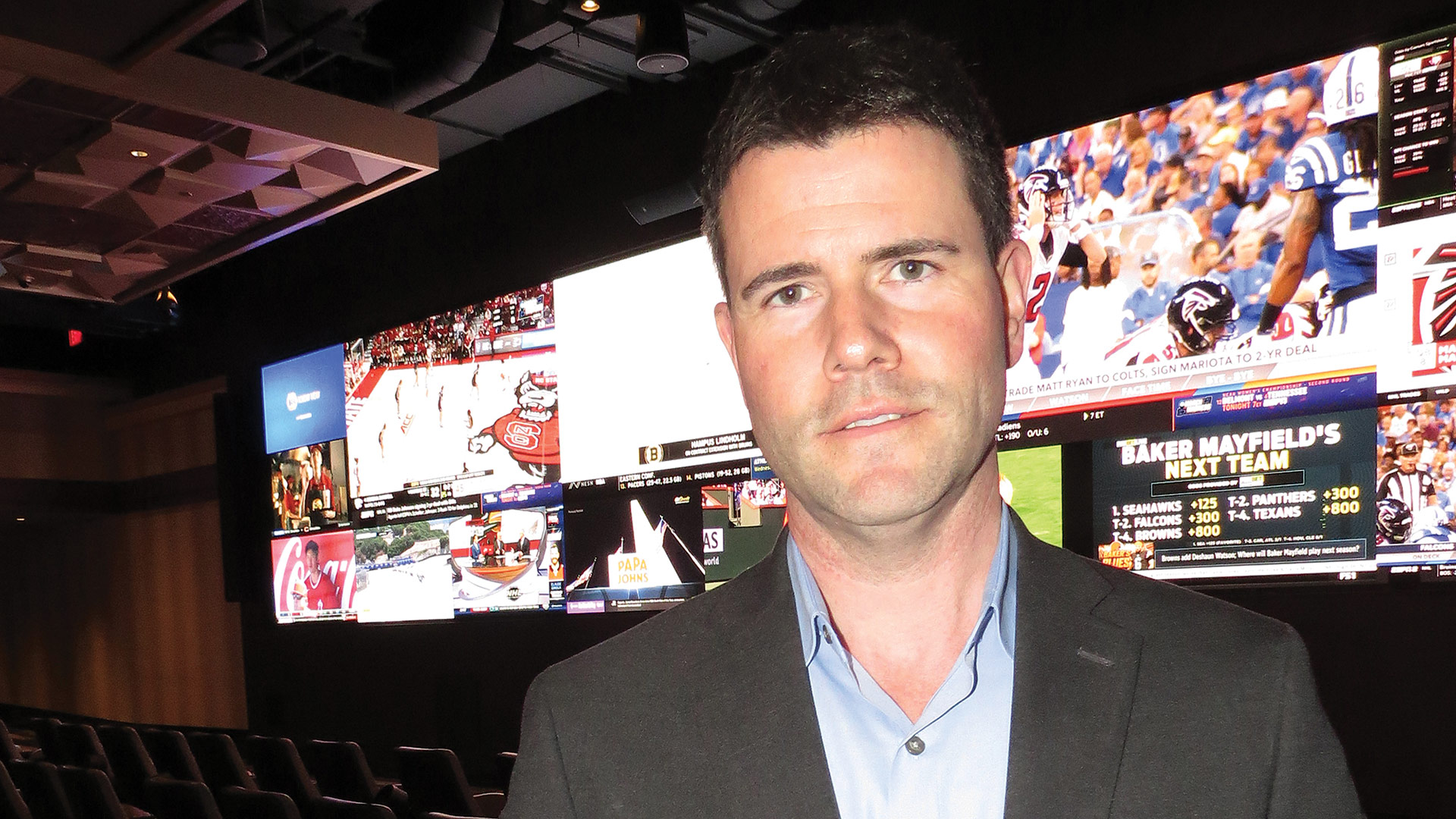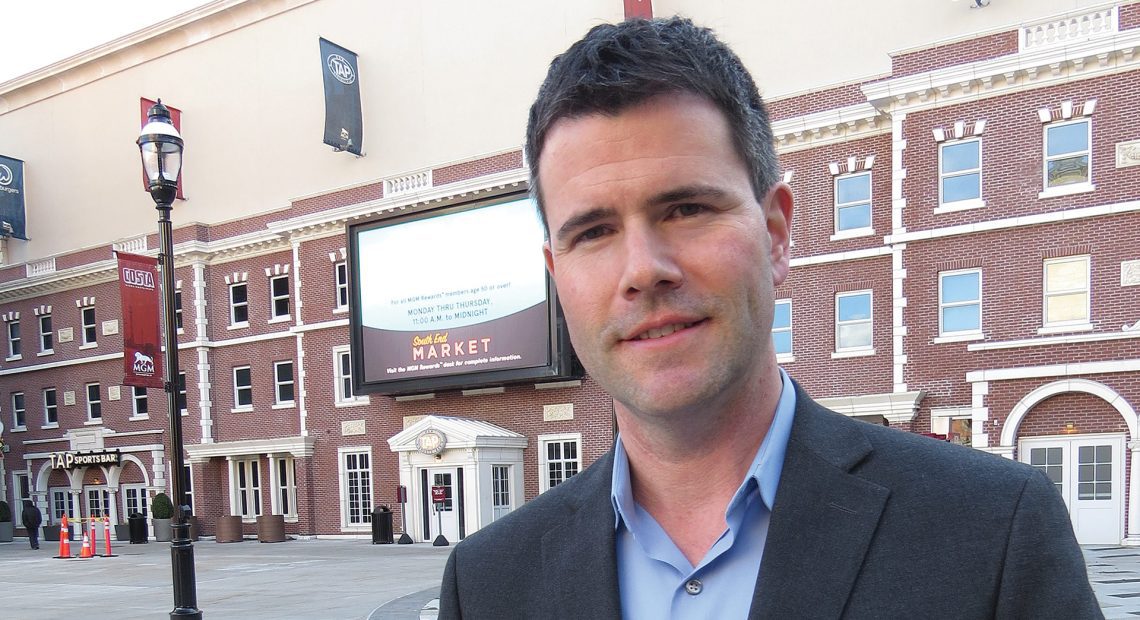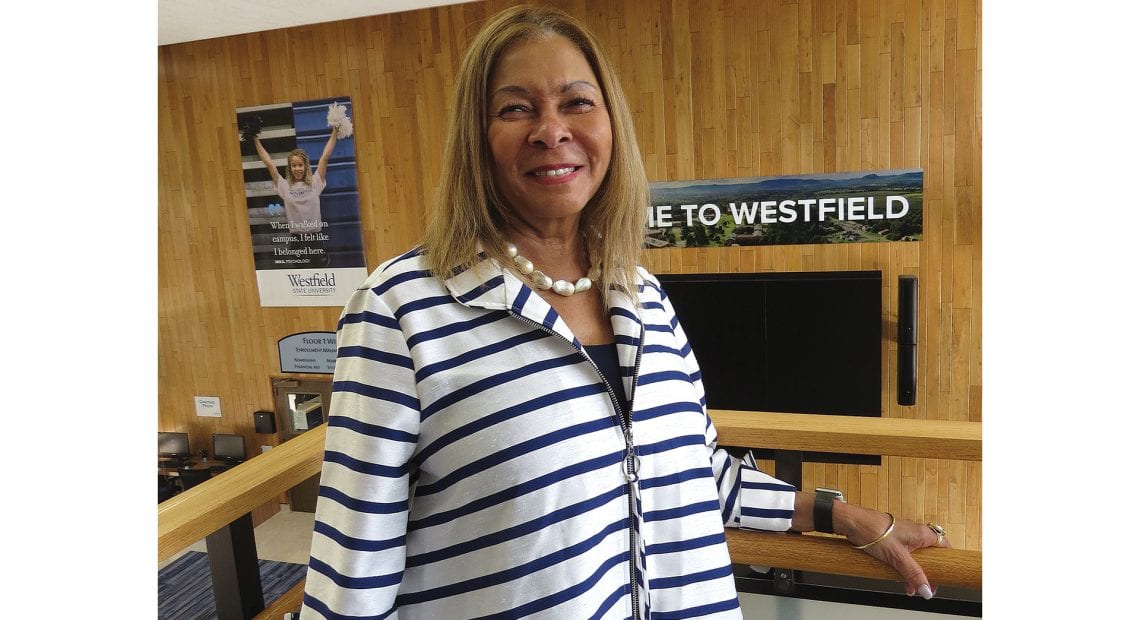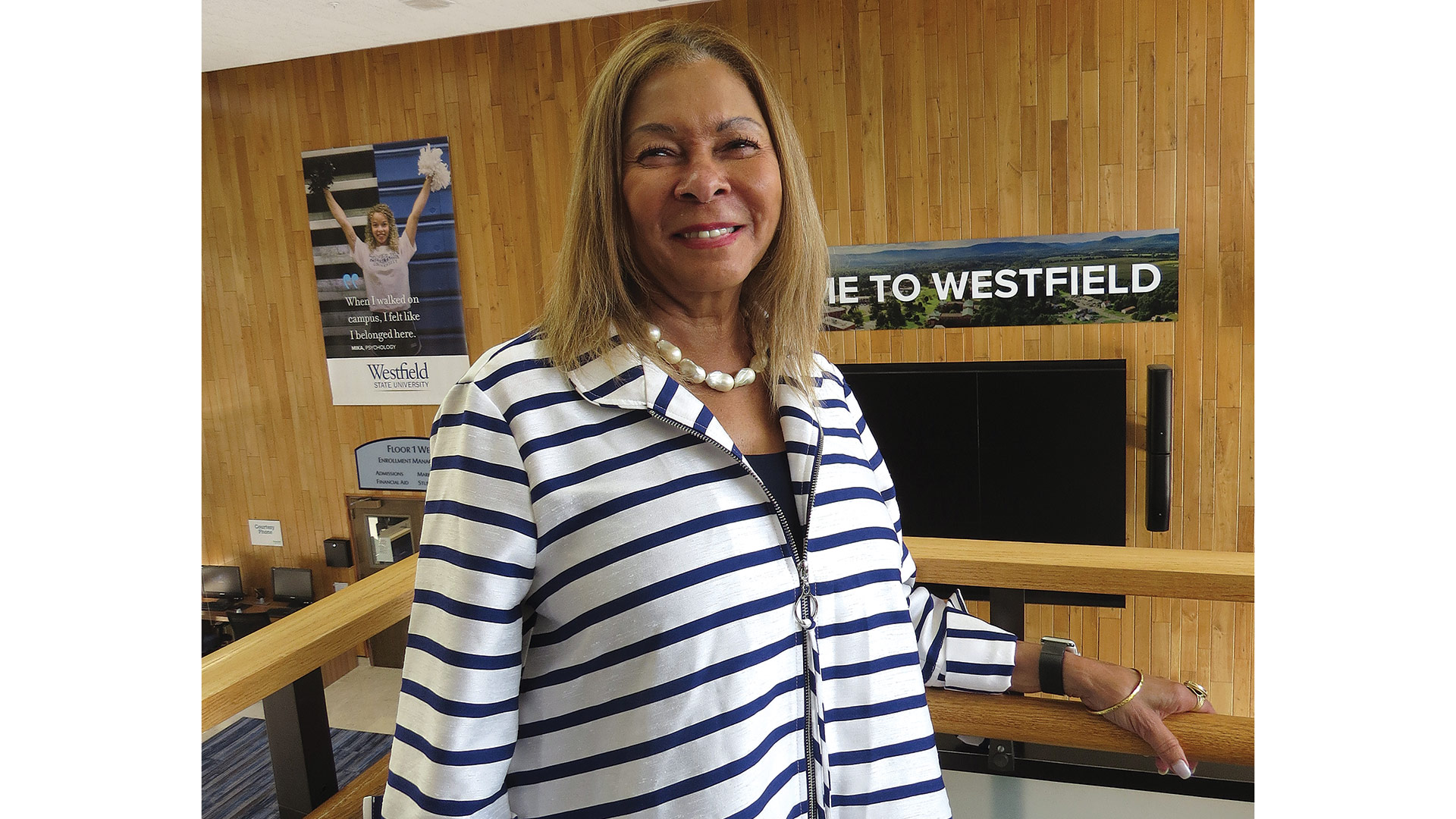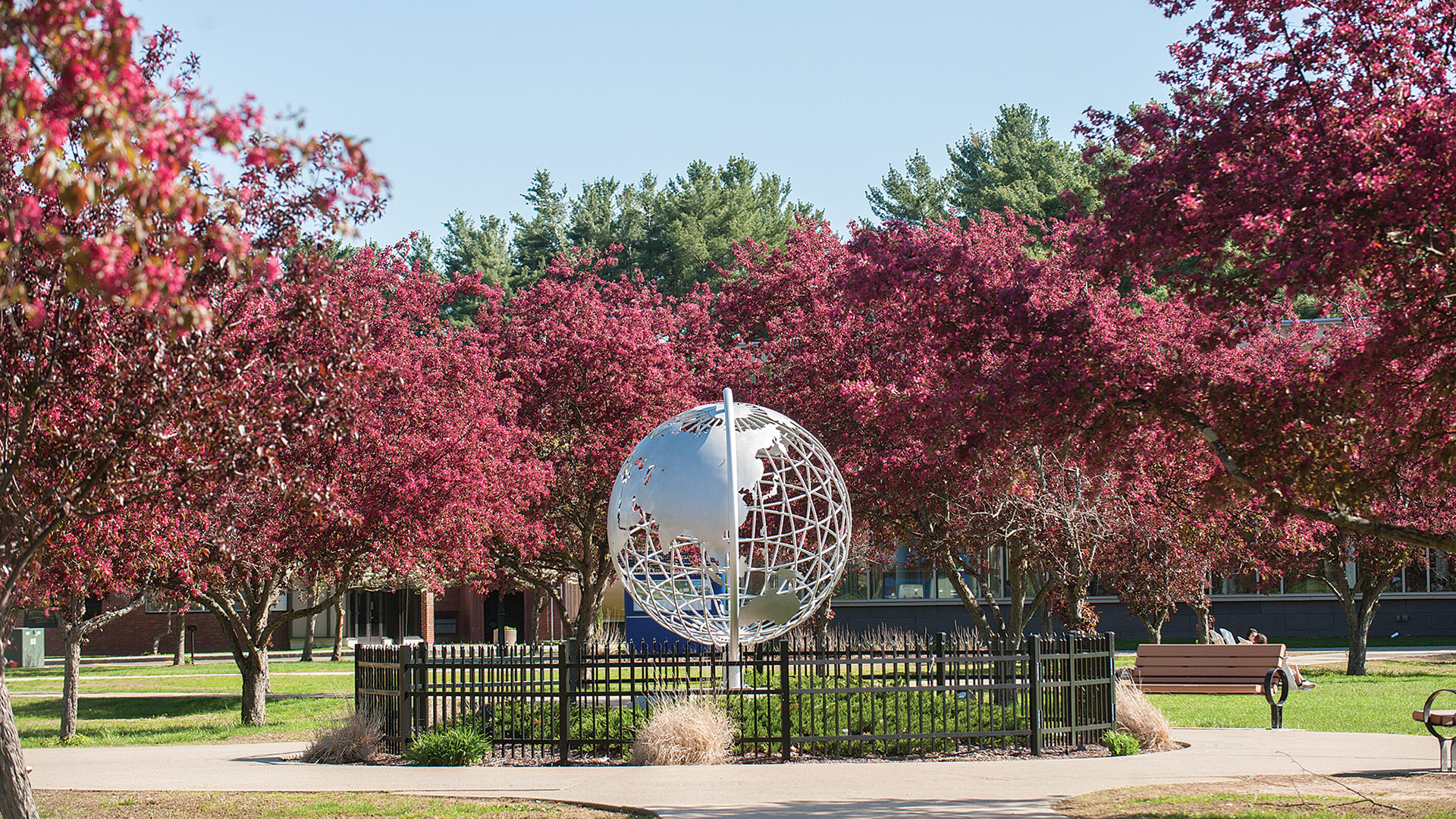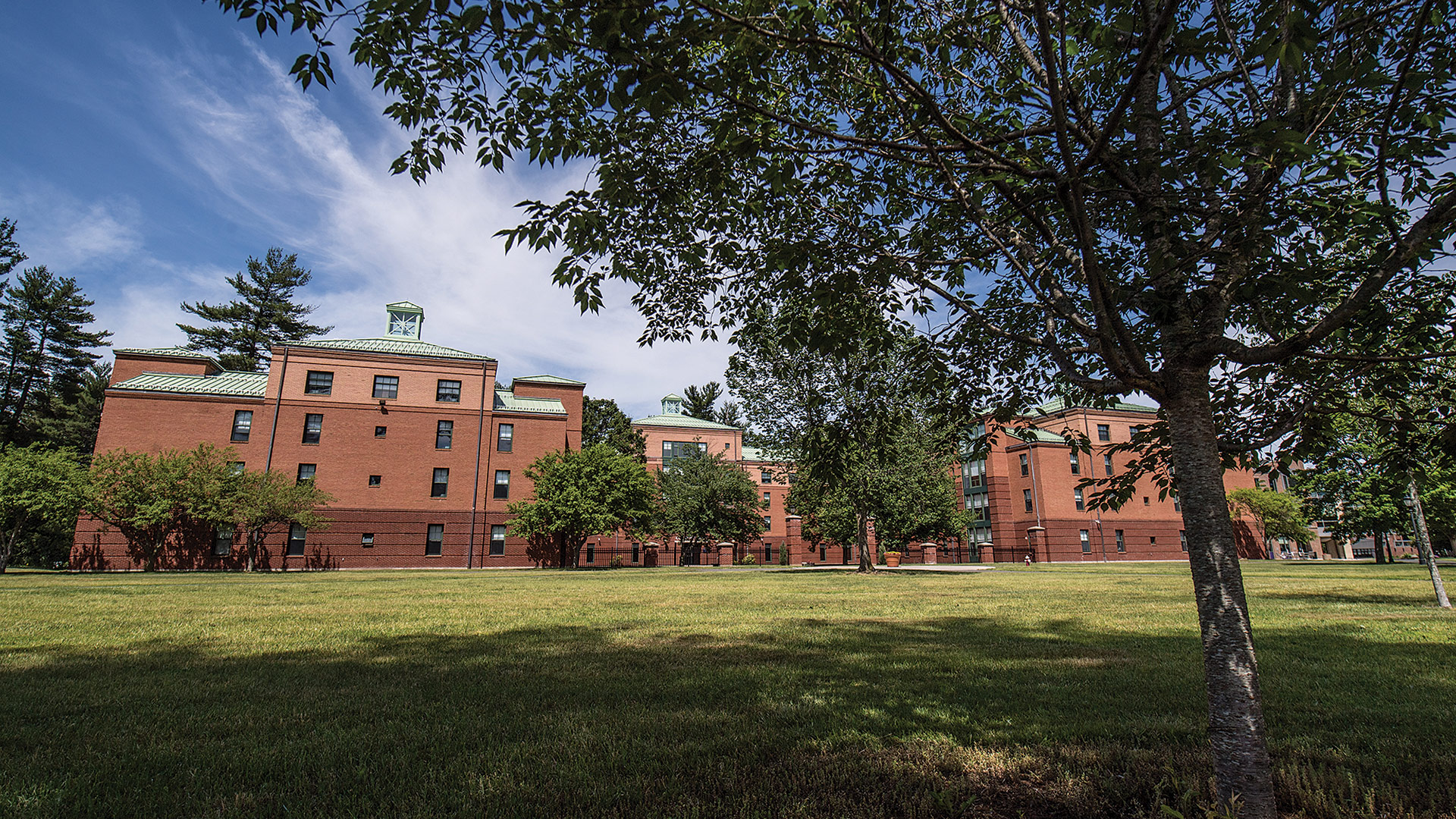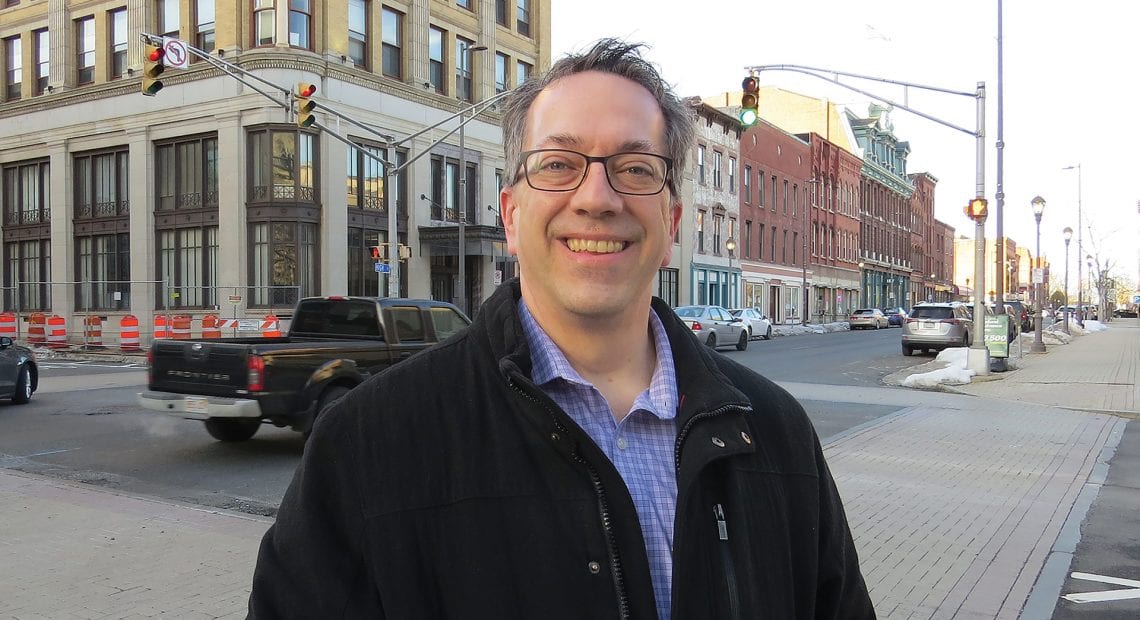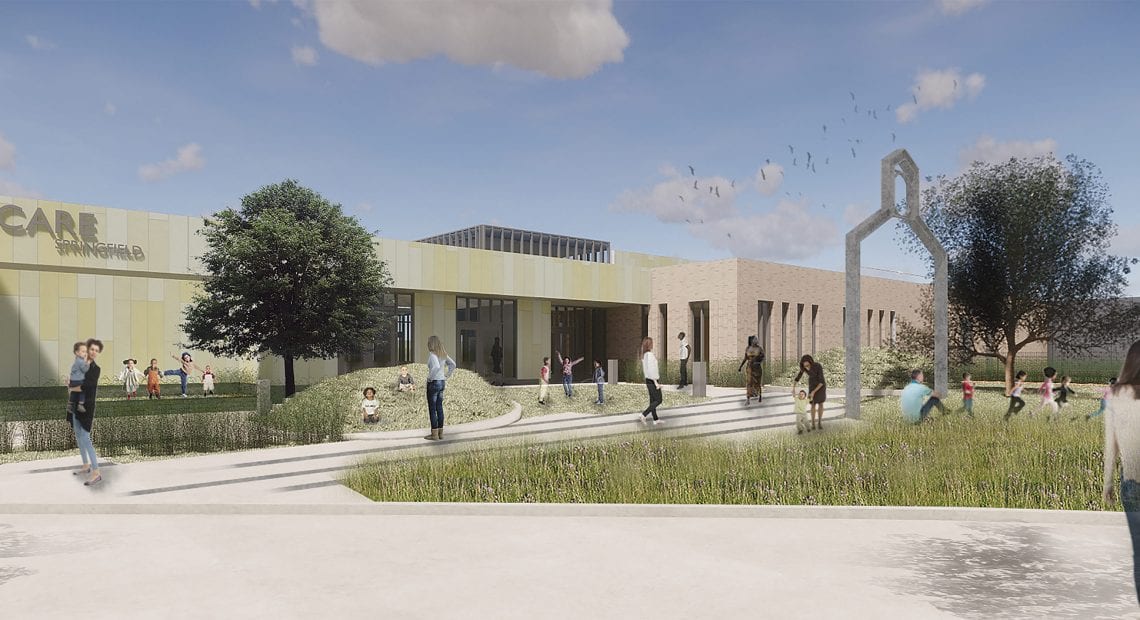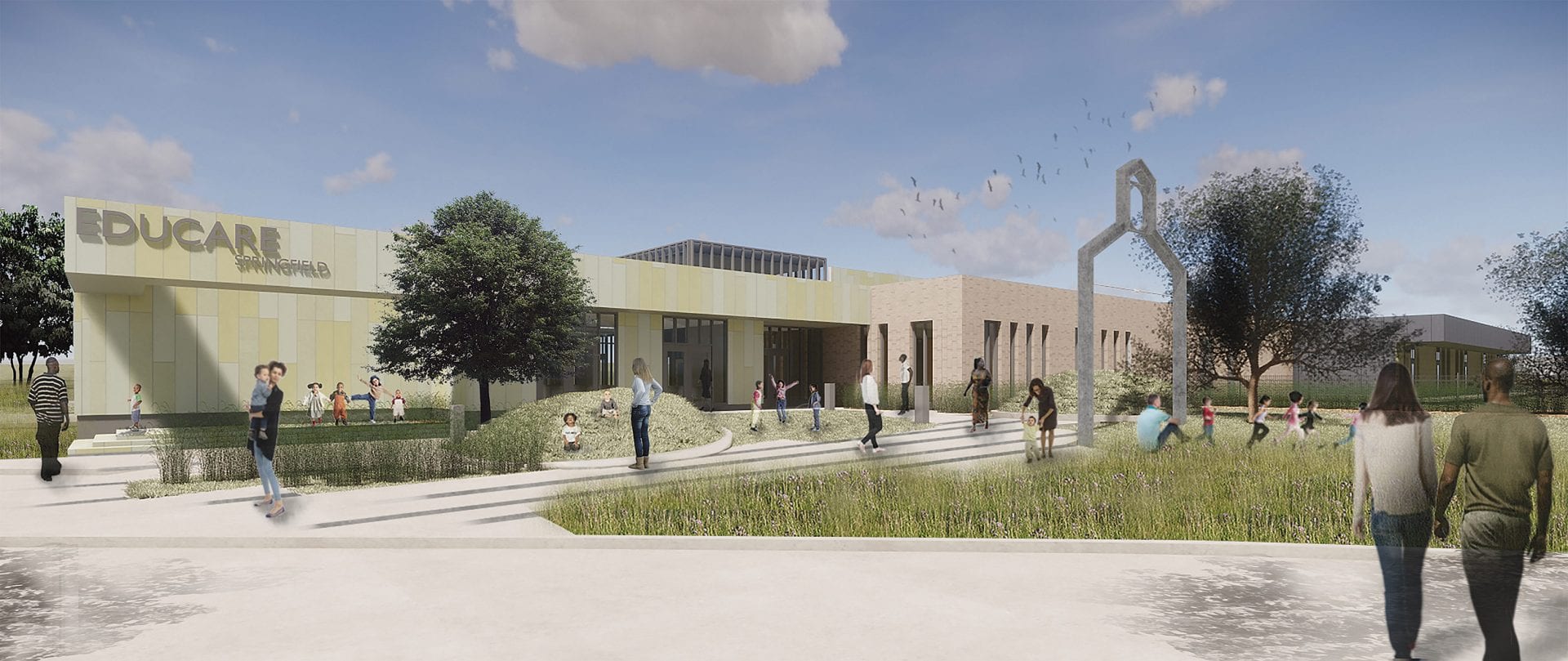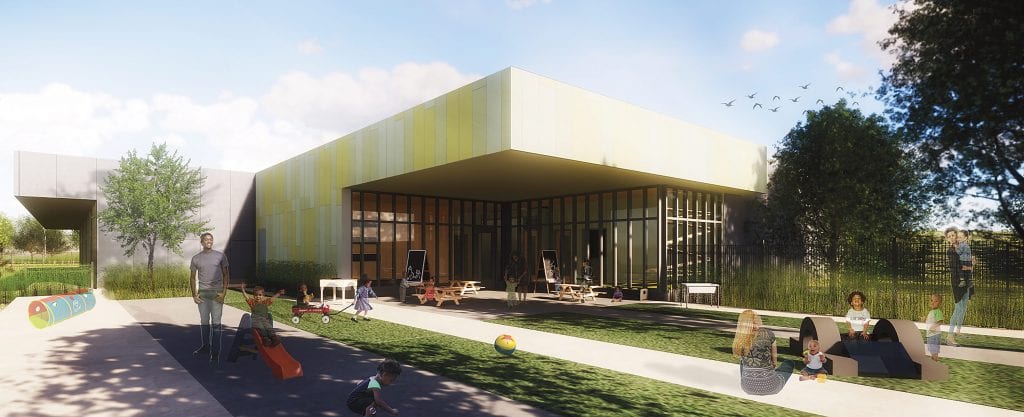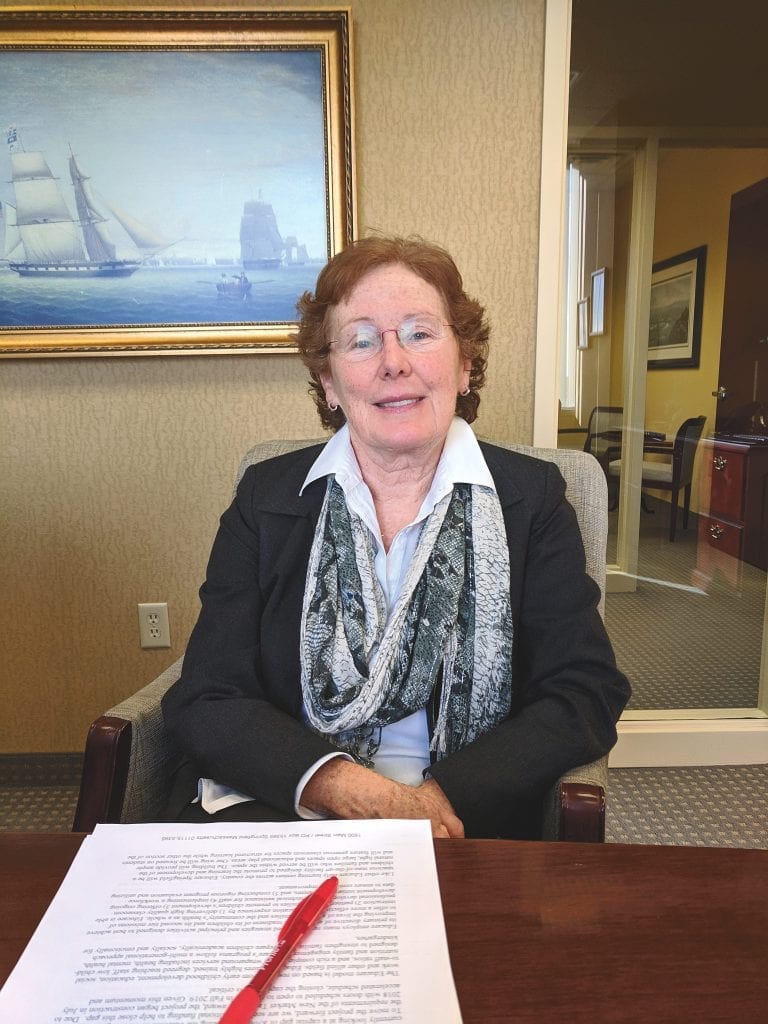Community Spotlight
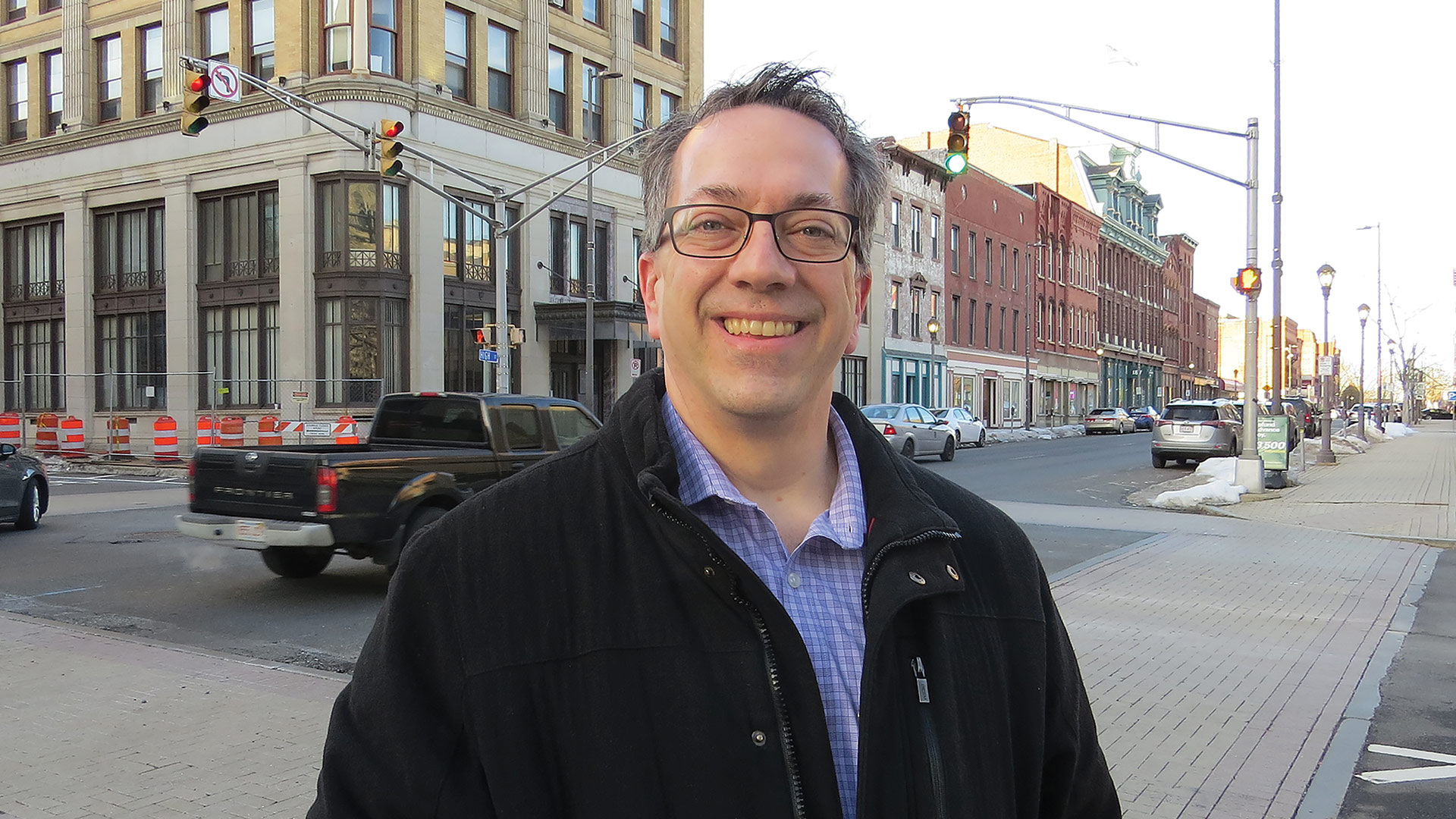
Aaron Vega says Holyoke lost considerable momentum to the pandemic, but it has a solid foundation on which to mount its recovery.
When he made up his mind roughly a year ago not to seek re-election to the state House seat he had held for four terms, Aaron Vega had an informal list of things he would like to do next when it came to his career.
Working in Holyoke City Hall certainly wasn’t one of them. But … things changed, in many ways, and in a profound way.
For starters, the COVID-19 pandemic limited some of the other options he was thinking about professionally, especially those in higher education, economic development, and workforce development. More importantly, though, Marcos Marrero, the long-time director of Planning and Economic Development in Holyoke, decided that he, too, wanted a change. And as he went about looking for someone to fill his rather large shoes, he started talking to Vega, someone who obviously knew the city, was heavily invested in its future, and was looking for work.
“Working for the city wasn’t really on my shortlist — and not in a negative way,” said Vega, the former Holyoke city councilor who started his five-year appointment just a few weeks ago. “Marcos reached out to me and asked if I’d be interested in taking the position; it came out of the clear blue sky. I was honored that he saw me as someone who could take the reins and keep going.”
He takes the helm in economic development when Holyoke, like most communities, and especially the urban centers, are looking to regain momentum lost due to the pandemic.
And, in the case of the Paper City, it’s a large amount of momentum.
Indeed, over the past several years, Holyoke had made great strides in a number of areas — downtown revitalization, with its cultural economy, with entrepreneurship and new business development, and, most recently, with cultivation (pun intended) of a new and potential-laden industry sector: cannabis. Indeed, with Mayor Alex Morse — who will not be seeking re-election in November and has been offered the the job of town manager of Provincetown — putting out the red carpet for the cannabis sector and the city blessed with millions of square feet of vacant mill space that is in some ways ideal for cannabis growing and other aspects of this business, Holyoke has become a destination for companies looking for a home.
The pandemic has certainly slowed the pace of progress in most of these areas, though. It has certainly impacted the cultural economy, most notably with the news that Gateway City Arts, the multi-purpose arts venue, has closed, and its owners are looking for a buyer. But signs of lost momentum are everywhere. The Cubit Building, once a symbol of downtown revitalization, is still humming on its residential floors, but the Holyoke Community College MGM Culinary Arts Center has been all but shut down by the pandemic. Meanwhile, there are still a number of vacancies on High Street and other downtown throughfares. And the Holyoke St. Patrick’s Day Parade, a significant economic engine for Holyoke and the region as a whole, has been canceled for the second year in a row.
“A lot of the groundwork is sort of done, and in some ways, this office how has to be more proactive and outward-facing — how can we go out to private industry and market Holyoke better? We need to go door-knocking and tell people, ‘think about Holyoke as a place to set up shop.’”
“That’s been a huge financial hit to the restaurants and many other kinds of businesses,” Vega said of the parade. “The trickle-down impact is severe.”
Even the cannabis sector has been slowed a little by the pandemic, but in most all respects, it remains a powerful force in Holyoke, with more than 30 ventures currently at some stage of progression and perhaps 300 new jobs coming to the city with the slated opening in the next few months of Florida-based Truelieve’s facility on Canal Street.
The company, which has more than 2 million square feet of cultivation facilities and more than 70 dispensaries across several states, will operate a multi-faceted, vertically integrated operation that will include cultivation, production, and office operations in a 145,000-square-foot facility formerly occupied by Conklin Office.
“We understand scale, we understand supply chain, and we’re going to be bringing that experience to Massachusetts as we build out our cultivation here,” said Lynn Ricci, director of Investor Relations and Corporate Communications for the company, adding that the company expects to begin operations by the third quarter this year and employ between 250 and 300 people from the Holyoke area when fully operational.
For this, the latest in its Community Spotlight series, BusinessWest turns its lens on Holyoke, an historic city that has bounced back from its decline in the ’60s and ’70s, and must now, in some ways, bounce back again.
Growth Opportunities
Vega is certainly no stranger to the large office he now occupies on the third floor of the City Hall annex building.
When he was a state representative, he would meet with Marrero there every month so he could keep pace with what was happening in the city where he grew up, spent most of his childhood life, and still lives.
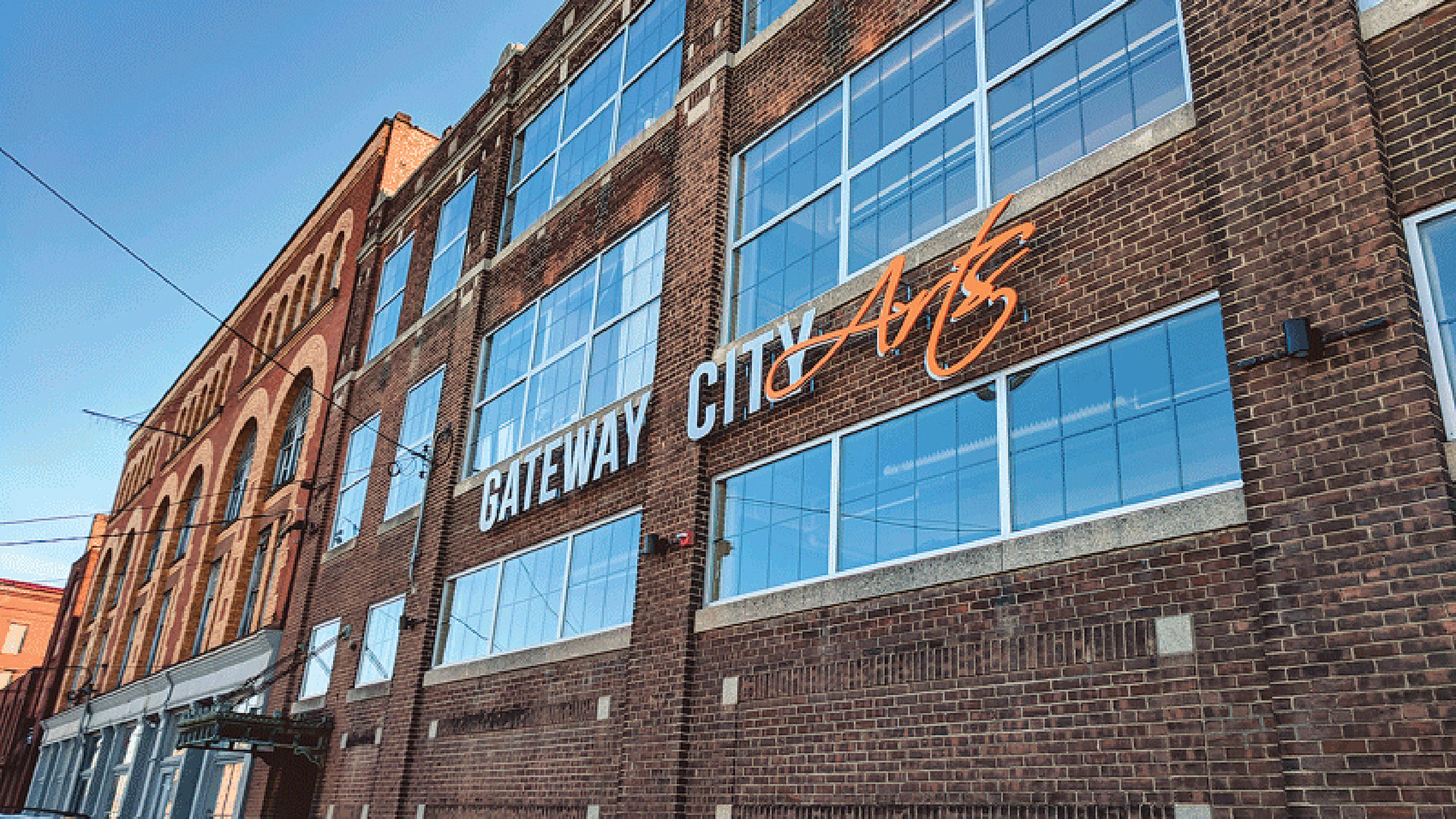
Gateway City Arts is just one of many Holyoke businesses in the arts and hospitality sectors to be devastated by the pandemic.
“We had a standing meeting with him in this office to keep up to date on all the projects that were going on, particularly around cannabis, because I was on the Committee on Cannabis Policy,” he explained. “So I was familiar with most of what was going on in this office, and I knew everyone in this office.”
Today, he’s having those same meetings with Patricia Duffy, his former legislative aide who successfully ran for his House seat last year.
“We just met a few days ago,” he said with a laugh. “We have a standing monthly meeting. It’s interesting being on the other side of the table — I spent the last eight years fighting for funding for all these programs, and now I’m actually utilizing them, and that’s kind of fun.”
Offering a similar update of sorts for BusinessWest, Vega focused on the momentum that has been lost in the city and the need to turn the clock back, in some respects, and put Holyoke back on the intriguing path it was on before March 2020.
“If you look at Gateway City Arts … the pandemic just took the wind out of them, it took the momentum away; it’s like someone slammed the door in their face.”
Before getting to that, though, he was asked to elaborate on the circumstances that brought him to his current post.
“I wanted to focus more,” he said simply when asked why he wanted to move from his House seat. “One of the great things about being a state rep is all the different topics and issues that come across your desk. But, that said, you don’t really get to focus on anything; the best description of my job as state rep was that I was in a permanent liberal-arts education — and there were certain topics that I just wasn’t passionate about.”
He is certainly passionate about Holyoke, and his goal now is built on what had been achieved in the years before the pandemic.
“What Alex and Marcos did was change the conversation about Holyoke, they changed the direction of a lot of the development, and they helped usher in a plan — the urban-renewal plan,” he explained. “A lot of the groundwork is sort of done, and in some ways, this office how has to be more proactive and outward-facing — how can we go out to private industry and market Holyoke better? We need to go door-knocking and tell people, ‘think about Holyoke as a place to set up shop.’”
The story the city can tell is a good one, although, as noted, it was better before the pandemic.
“Things were happening in this city; the momentum was happening,” Vega said. “It took a while to build that momentum, and hopefully we can get it back soon.”
The loss of Gateway City Arts, however, is a serious setback for the community.
“It was firing on all cylinders,” he said, referring to everything from its event venue to its popular restaurant. “And it’s ironic because we’re six or seven months away from having 200 to 400 more people working in downtown Holyoke in the cannabis industry — people who will be looking for a place to go eat or have a beer or listen to music after work. The irony is that we don’t have that right now.
“The biggest hit has been with momentum,” he went on. “Our restaurants took a hit, just like Northampton and Springfield; the housing developments, especially if they were dealing with state incentives, have been pushed out — everything’s taking longer now.”
Overall, Vega said, the pandemic has made it difficult for some small businesses to survive, and it’s made it more difficult for all of them to operate as they would like.
“If you look at Gateway City Arts … the pandemic just took the wind out of them, it took the momentum away; it’s like someone slammed the door in their face,” he said, adding quickly that there is interest in some of the components of that business, and, likewise, the phone is starting to ring, and more interest is being shown in Holyoke within the development community.
“There’s a couple of key projects where, if we can get them online, we can regain some of that momentum,” he told BusinessWest, noting that one such project is a large housing initiative downtown, a 92-unit project being undertaken by WinnDevelopment at the former Farr Alpaca mills that has been slowed by the always-complicated process of applying for and receiving historic tax credits.
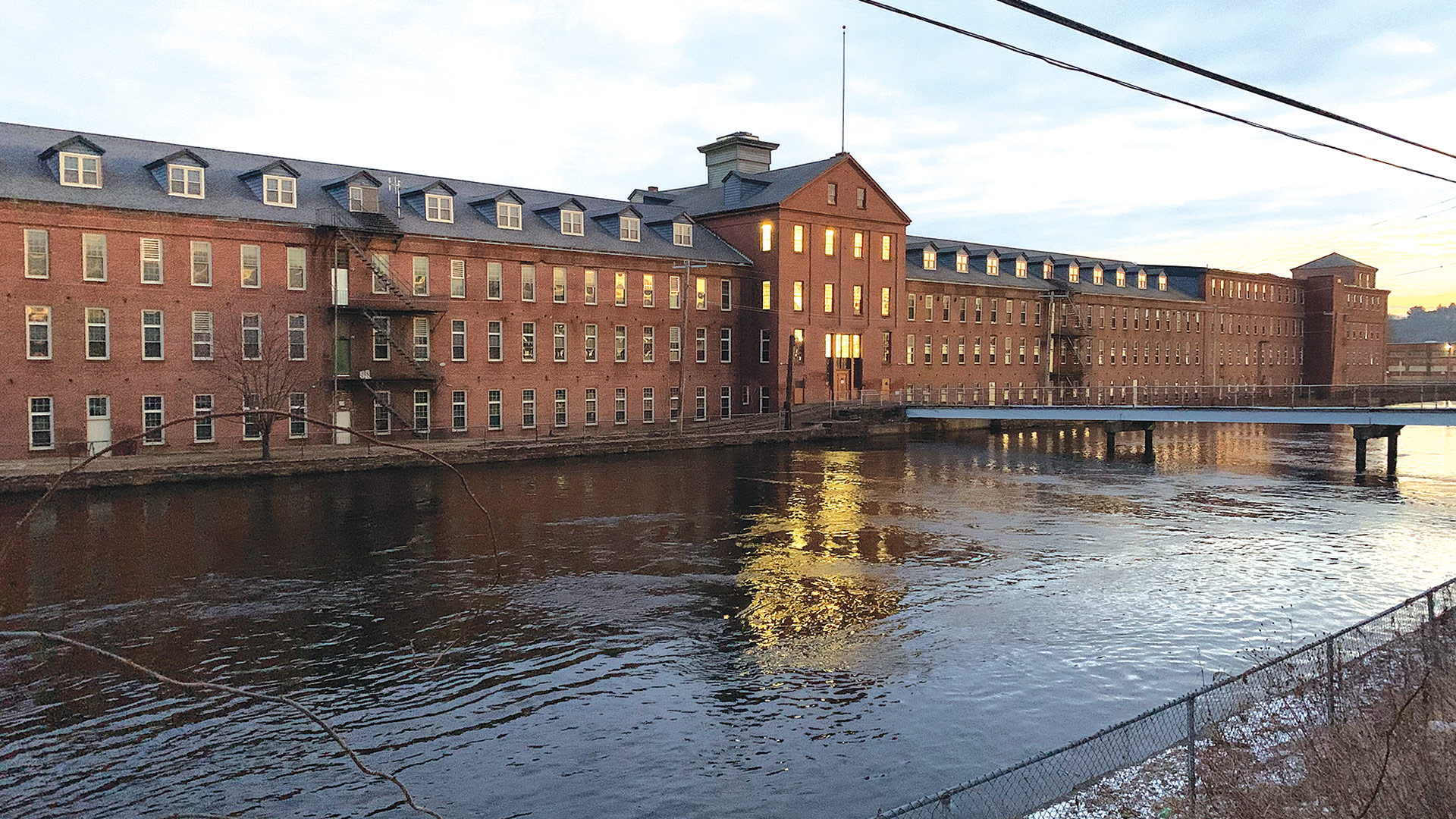
Truelieve’s massive facility on Canal Street is ramping up for opening, and is projected to employ between 250 and 300 people when fully operational.
Meanwhile, some projects that were “percolating,” as Vega put it, before the pandemic and back-burnered to one extent or another are perhaps poised to be revisited and moved off the drawing board. These include some indoor agriculture that is not cannabis-related.
“The biggest price-point stuff that they’re talking about right now is lettuce and herbs,” he noted, “because there’s a quick-growing cycle; you can turn lettuce around in 30 days. So many restaurants want locally grown, hormone-free lettuce … there’s real potential there, and they can grow other vegetables, too. The price point is not as good as cannabis, but we’ve been talking about urban farming for a while, and we’re trying to create opportunities.”
On a Roll
Speaking of cannabis, while the pandemic has slowed some aspects of that sector, the industry is poised for additional growth, especially in the Paper City. The next important chapter looks to be written by Truelieve, which just received its occupancy permit. But there are many companies with plans in various stages of development.
Indeed, Vega said, there are two growing facilities now online and three dispensaries, but, overall, there are 40 host agreements and 40 provisional licenses at the state level.
As for Truelieve, its story touches on many of the opportunities and challenges that Holyoke and its old mills present, said Ricci, who started by noting that the company was mostly in Florida before last year, when it started expanding aggressively into other states, including a cultivation facility in Pennsylvania (added through acquisition) and dispensaries in Connecticut and other states.
“We really see 2021 as a big year for national expansion and being a true multi-state operator,” she explained, adding that, when looking for places in which to broaden the portfolio with new facilities, Truelieve focuses on cities and towns with large minority populations, communities that clearly need the jobs and everything else these ventures bring to the fore.
“Investing in a majority minority community was important to us,” she said. And upon concluding that the Bay State would be a good market to enter, Holyoke soon came onto its radar.
Holyoke at a glance
Year Incorporated: 1850
Population: 40,135
Area: 22.8 square miles
County: Hampden
Residential Tax Rate: $19.04
Commercial Tax Rate: $39.74
Median Household Income: $33,030
Family Household Income: $36,262
Type of government: Mayor, City Council
Largest Employers: Holyoke Medical Center; Holyoke Community College; ISO New England; Hazen Paper
* Latest information available
“We wanted to make sure, going in, that we were revitalizing and adding to the community and providing jobs; those kinds of things are important to us as a core value of the company,” she noted. “When we found this location in Holyoke, an area that had certainly seen better times, we thought, ‘we could invest here and provide the jobs.’”
As for the site in Holyoke, renovating the historic mill has been “a huge undertaking,” Ricci said, adding that the company entered into a sale/lease-back arrangement in order to secure the nearly $40 million required for this project (cannabis operations cannot obtain traditional bank financing, because the product is illegal on a federal level).
The actual buildout was an involved process that began more than a year ago and was slowed by state mandates that shut down many types of construction during the early months of the pandemic.
“The property is beautiful in its own way — there’s big, wide staircases and beautiful brickwork, but … it needed a lot of work,” she told BusinessWest. “It has been a challenge, and not just to set up different rooms, but to make sure everything was set up properly.”
Staffing is the next challenge to be overcome, Ricci said, adding that final inspections of the facility are expected sometime this quarter, with growing due to begin, as noted, in the second quarter.
Other facilities are in various stages of the pipeline, said Vega, who told BusinessWest that, while the city is welcoming all types of cannabis businesses, the larger cultivation facilities hold the most promise for jobs and overall impact on the city and the region, and he can envision the day when perhaps eight to 12 such ventures are operating in the city.
And, like his predecessor, he sees opportunities not merely for the growing and selling of cannabis, but also encouraging businesses that can provide needed products to those ventures.
“A lot of the products used by these businesses are made in Texas and Florida, the simple things like the planters — we should be making those here in Holyoke,” he noted. “I equate it to the ‘green’ industries. It’s great seeing solar fields — we have some in Holyoke — but we should be building solar panels in Western Mass., not just installing them.”
Bottom Line
Making progress in that area is just one of the ways Holyoke will be looking to regain the considerable amount of momentum it lost to the pandemic.
The city that had come so far in the past decade has the foundation that Vega mentioned in place. It has the building blocks, and it has a cannabis industry hungry for the open spaces, low energy prices, and other amenities that this city can provide.
The pandemic certainly slowed the pace of progress, but Vega and other officials are confident that the Paper City can soon regain its stride.
George O’Brien can be reached at [email protected]
